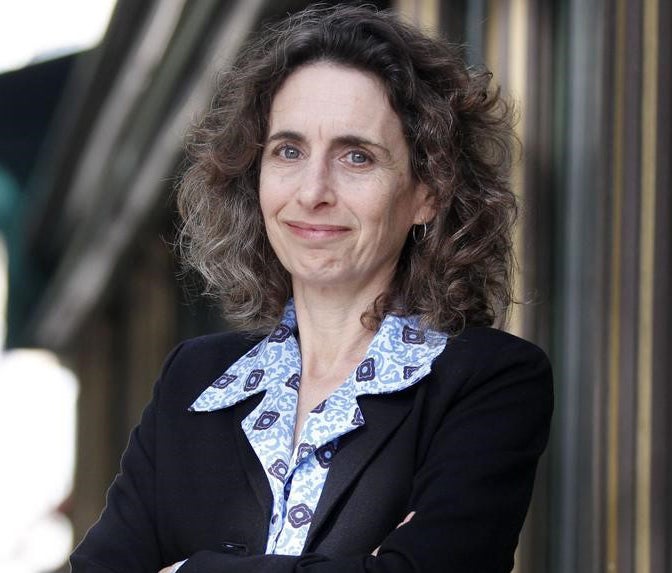KINGSTON, R.I. – April 6, 2023 – In more than two decades of award-winning reporting, science writer Elizabeth Kolbert has built a reputation as one of the nation’s most prominent voices on climate change. On Thursday, April 13, Kolbert will bring her years of expertise to the University of Rhode Island to close out the Center for the Humanities’ yearlong series, “Re-Envisioning Nature: An Environmental Humanities Lecture Series.”
The free, public lecture starts at 4 p.m. in the Hope Room at the Higgins Welcome Center, 45 Upper College Road, Kingston. To attend the talk or watch the livestream, register at the lecture webpage.
“We’re thrilled about ending our successful yearlong series on environmental humanities with a visit from Elizabeth Kolbert,” said Evelyn Sterne, director of the Center for the Humanities. “As an undergraduate English major who went on to become one of the nation’s foremost science writers, she exemplifies a central goal of this series: to determine how the humanities help us to engage with the urgent environmental questions of our day.”
Kolbert may be best known for her Pulitzer Prize-winning book, “The Sixth Extinction: An Unnatural History,” which follows the history of mass extinctions and looks at widespread extinctions today. But she has been an award-winning journalist for The New Yorker for nearly 25 years, traveling the world to cover the story of global warming.
Her 2005 New Yorker series on global warming, “The Climate of Man,” won the American Association for the Advancement of Science’s magazine award. In 2006, she captured the National Magazine Award for Public Interest for a three-part series, which resulted in her book “Field Notes from a Catastrophe: Man, Nature, and Climate Change.” Her work has also appeared in The New York Times Magazine, Vogue and Mother Jones.
She is the recipient of the National Academy of Sciences Communication Award, the Lannan Writing Fellowship, the 16th annual Heinz Award with a special focus on global change, a Guggenheim Fellowship in Science Writing, and a SEAL Environmental Journalism Award, among many more.
Published in 2021, her sixth book, “Under a White Sky: The Nature of the Future,” has been a national best-seller and was named one of the best books of the year by The Washington Post, Time, Esquire and Smithsonian Magazine, among others.
On April 13 at URI, Kolbert will take part in a conversation moderated by URI labor and environmental historian Erik Loomis.
Kolbert’s presentation is part of the humanities center’s annual Spring Humanities Festival, which will include the presentation of the humanities achievement awards to an undergraduate and graduate student who have made strong contributions to the field of the humanities and URI, and show promise in a humanities-related career.
This year’s humanities series has brought in speakers from across humanities disciplines, including a musician, maritime historian, nature writer and expert on Indigenous environmental issues, and has attracted especially large audiences for such appearances as writer Terry Tempest Williams and Providence-based musician Jake Blount.
Also, Sterne said the “Big Read” of Kolbert’s “Under a White Sky” has been very successful, with all 100 copies of the book made available by the College of Arts and Sciences snatched up. There also were discussions of the book, overseen by Loomis and environmental historian Ximena Sevilla.
“We’re very excited about how successful this series has been,” said Sterne. “From the beginning, the series has attracted a lot of attention from students, faculty and staff across the disciplines, and support by units across URI. This has been really gratifying as one of the Center for the Humanities’ goals is to forge connections and encourage conversations between people in the humanities, social sciences and physical sciences.”
To view previous presentations in this year’s series, go to the event webpage and select from the individual lectures.

